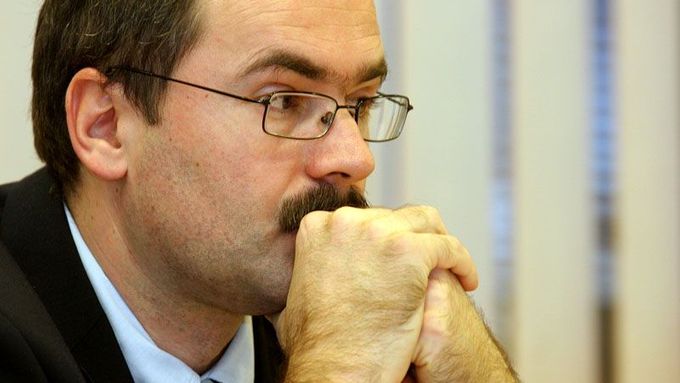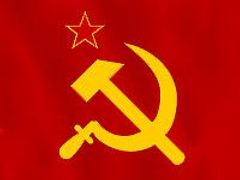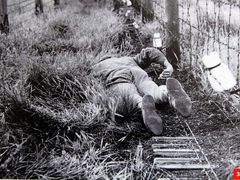Prague - Any totalitarian regime focuses on gripping as much power as possible. Czechoslovak authorities knew very well how to do that and because of that they did not have to have as robust an apparatus of police force called State Security (Státní bezpečnost, popularly known as StB) as East Germany once had.
Czechoslovak dissidents were isolated from the common citizen much more than their colleagues in any other communist country in Eastern Europe.
The gap between the intellectual dissent and the majority of people was widened by tight cooperation between official and secret police, militias, the Communist Party apparatus, the army and Church officials.
As a result, majority of Czechoslovakia´s population gave up any attempts to resist the authoritarian and some even cooperated with the establishment.
"But if someone was revealed to have beaten by his wife, for example, he would not be ´hired´ [as an informer]," Pavel Žáček, director of the The Institute for the Study of Totalitarian Regimes, says in an Aktuálně.cz interview.
"StB had the largest number of informers, as much as 100,000, at the turn of 1959 and 1960," adds Žáček.
The number of informers decreased down to 15,000 around the 1968 Prague Spring reform. The liberalization trend of the regime was halted by the armed intervention of the USSR and its Eastern European allies in August 1968.
As the pro-Soviet "normalization" regime was established in the 1970s, the number of the StB informants began to grow yet again. In the half of 1989, when Communism in Europe was about to be toppled, the number had culminated up to 30,000.
1950s: Golden era of snitching
In years 1953-68, between 100,000-200,000 Czechoslovak citizens are beleived to have cooperated with StB.
Was it a large or small number?
We cannot overestimate the numbers. Within the intelligence network, we can usually find people who did not prove to be so efficient - they only provided unimportnat information and gossip.
Then there was a category of people who had specific tasks - sometimes they performed well, sometimes they did not.
And finally, there was the smallest number of collaborators who represented the elite.
These were people who enjoyed their job as informers and who were able to infiltrate the "enemy" of the state. StB had a reason to protect these people more than any other.
They were the top agents that infiltrated the dissent, foreign embassies as well as foreign elements. The information they gathered influenced the course of the politics of the day and communication in the entire Soviet satellite bloc.
And if somebody proved useless, they stopped using him?
The process of getting new agents took weeks or months and only mentally fit people were "hired". If a person was revealed to be beaten by his wife, for example, he was not suitable to do the job. Logically, there was a suspicion that if a man is physically weak, he can potentially reveal something.
How many employees StB had in 1989?
Approximately 15,000-17,000. It is a relatively small number.
GDR: Robust secret police
And this counts for all Czechoslovakia?
Yes. Evidently, a relatively small apparatus sufficed to control the whole country compared to the German Democratic Republic. Stasi [German State Security] had over 100,000 employees, but this number includes those agencies that focused above all on Western Germany.
Czechoslovakia had a total of 30,000 unofficial collaborators and German Stasi had 109,000 unofficial informants. We see that Stasi, which was based on the rich bureaucratic past dating back to the Gestapo times [secret state police of Nazi Germany] operated in a different way. Stasi had a much tighter control over East German society.
The Czechoslovak regime used other tools to control its society, the party intelligence service apparatus among them. It is yet to be discovered what means exactly they used to harrass people.
Is it possible to claim that in the 1950s terror was the main instrument of the state while since the 1960s psychological pressure dominated?
The change took place long before the 20th Congress of the Communist Party of the Soviet Union in 1956 because the Stalinist approach was rejected. It took Czechoslovakia´s StB some time to accept this change of approach. However, even long after it acdepted the new approach, StB always relied on fear mongering. They used means that are hard to understand for us today, for example, denying people trips abroad or study. Their popular means were threats aimed at children or pressure against persons with relatives or friends abroad.
The scale of measures was wide and perfect. But StB had these measures established long before the "normalization" era in the 1970s came. This process of control was hampered by the Prague Spring reform movement that came in 1968.
Yet, StB and other authorities, such as people's militias, managed to reverse the Prague Spring liberalization trend. Again, scaremongering became the fundamental tool for controlling people. Anybody who crossed the line had to pay the price.
United we stand...
Did the regime use some special psychological means in order to break the "rebels"?
We could find discrediting data on everyone. Every citizen of Czechoslovakia violated some regulations in one way or another, for example just by stealing at work. The motto of the day was: "He who does not steal steals from his own family." Besides, there was a number of bureaucratic directives that could not be obeyed.
Czechoslovaks did not resist the regime´s harrassment as the Polish did. There were institutions independent of the communist regime in Poland, for example the Church or trade unions. They were able to form an opposition to the establishment and created a social network. So for example, if the regime harrassed a family, the family would be backed up by the social network.
In East Germany or Czechoslovakia, the Church was not so helpful?
The Church worked in both countries, but to a much lower degree, because the Church officials were manipulated by the regime.
Czechoslovakia´s Communists had more sources of repression, the army among them, and as such they managed to control the society so there was no need for a robust state security apparatus.
The army played a key role as well. Every city had a little army base which helped to support the regime. The Communist Party propaganda and apparatus were important, too. This is what the regime was about and if one part of the regime was to fall, it would create a domino effect against all the remaining parts. They knew why they had to stick together.
You can see the Institute´s website in English here.
Read more:
February 1948 - not bloody enough for Moscow
1968: Bilateral meeting anticipated Soviet invasion
Human torch of 39 years ago strongly remembered
Totalitarian regime study institute OKd by court
Czech ex-prosecutor not punished for judicial murder
Four Czech MPs listed as Communist informants










